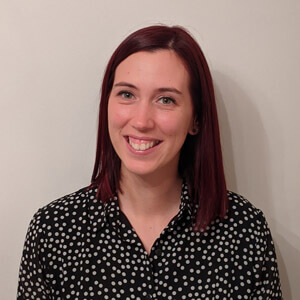My PhD research focuses on the use of individual countermeasures to sleepiness, predominately in shift working bus drivers. I am interested in understanding how people manage sleepiness, that is, what they choose to use or do to reduce feelings of sleepiness, and how this is impacted by their circumstance, for example their place of work. I have used both qualitative and quantitative research methods to explore this.
Driver sleepiness is an important and relevant issue within the field of sleep research. I think it is important that people know what to do when they are sleepy, and what strategies may reduce sleepiness, particularly during safety critical situations such as driving. It is possible that people may choose to use countermeasures that are ineffective at reducing sleepiness, either because they are unaware of the effectiveness of a strategy, or they are restricted in some way. If so, this is especially concerning within public transport drivers who may regularly experience disrupted and shortened sleep due to shift work. A reliance on these measures, especially within safety critical occupations, could potentially have serious consequences. Therefore, it is important to understand what individuals are doing if they feel sleepy, and why they are using certain strategies, to potentially implement interventions, such as education, to improve safety.
I became fascinated with the subject of sleep and sleepiness during my Psychology undergraduate degree at Loughborough, and that fascination has just continued to grow! Sleep is something that everyone experiences but it is also such an individual experience. We all feel sleepy at various times, however, increased sleepiness at the wrong time can be potentially dangerous, for example when doing something safety critical such as driving. Researching how people choose to counteract sleepiness during safety critical tasks and why they choose to use what they use has the potential for real-world impact and practical application, which is something I think is very important.

Studying for a PhD part-time can be challenging! I have always worked while studying, which has meant I have had to try and find a balance between working, studying and time to rest. I think it helps to try and set boundaries, e.g., designated days, and this can also help with productivity too. Studying part-time has meant that my PhD has taken longer, and that I have also had to study during evenings and weekends. However, it has also been very rewarding, as not only have I gained experience from my PhD, but I have also gained invaluable experience as a researcher both within industry and in academia.
Overall, I love the experience of constantly learning, whether that be new information, or new skills and techniques – there is always something new to learn and new challenges to face! As a part-time student it can sometimes be difficult to feel fully part of the PhD community, however the services and support provide by my research group (TSRC), my school (SDCA), the Doctoral College, and the network of other PhD students have all been fantastic. There are so many courses available for career and personal development and social activities to engage with from the PhD support network and Doctoral College, as well as many opportunities to present your research e.g., at internal conferences. I think all of this makes the PhD experience more enjoyable.
My advice for future PhD students is to accept that things will not always go to plan! It is of course important to plan but building in contingency and being adaptable to change will be useful skills for your PhD.
Studying for my PhD has taught me many important skills which have helped me to develop as a researcher, including designing and conducting research studies and various qualitative and quantitative research techniques. It has also taught me how to overcome problems, how to recover from setbacks, and how to adapt when things do not go to plan. My PhD has also improved my confidence, both in terms of talking about and presenting my research and ideas, but also confidence in my own ability as a researcher – which led me to nominate myself and be selected for the Early Carer Researcher Network committee in the European Sleep Research Society! Coming towards to end of my PhD with experience in all aspects of the research process including disseminating findings in publications and at conferences, is extremely valuable. All the skills I have learnt during my PhD will be useful for the next stage of my career.